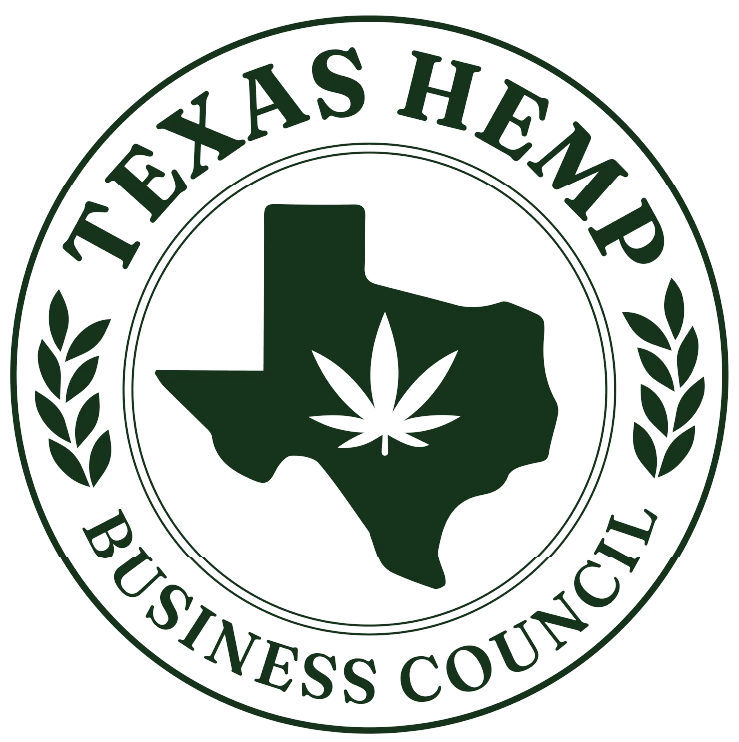
Texas Hemp Regulations
Texas Hemp Compliance
Rules & Safety
Texas has a regulatory framework in place for consumable hemp products, ensuring consumer safety through testing, labeling, and manufacturing oversight — without broad prohibition.
These rules were established under House Bill 1325 (2019) and are codified in the Texas Health and Safety Code, Chapter 443.
1. THC Limits
- All consumable hemp products must contain no more than 0.3% Delta-9 tetrahydrocannabinol (THC) on a dry weight basis.
- This aligns Texas law with the federal 2018 Farm Bill definition of legal hemp.
2. Laboratory Testing Requirements
Before products are sold, they must be tested by an accredited laboratory to verify:
- THC content (ensuring compliance with the 0.3% threshold)
- Microbial contaminants (e.g., E. coli, Salmonella)
- Heavy metals (e.g., lead, arsenic, mercury)
- Residual solvents (for extracted products)
- Pesticides (according to EPA and TDA lists)
- Mycotoxins (e.g., aflatoxins, ochratoxin A)
- Moisture content & water activity (optional but recommended for shelf stability)
3. Labeling Requirements
All consumable hemp products must include:
- The name and address of the manufacturer or distributor
- A Certificate of Analysis (COA) accessible via a QR code or bar code on the packaging
- Identification of the hemp-derived cannabinoids in the product
- The batch number linked to testing
- Required warning statements, such as: “This product has not been evaluated by the FDA and is not intended to diagnose, treat, cure, or prevent any disease.”
4. Manufacturing and Distribution Registration
- Any business that manufactures, processes, or distributes consumable hemp products in Texas must register annually with the Texas Department of State Health Services (DSHS).
- Businesses are subject to inspection by DSHS for compliance with manufacturing, labeling, and testing requirements.
- Retailers who only sell (not manufacture) consumable hemp products are not required to register, but they must still sell products that meet all legal standards.
5. Retail Sales & Retailer Responsibilities
-
Retailers must:
- Ensure all products on their shelves have valid COAs
- Keep product documentation on-site for inspection
- Comply with all DSHS recalls, stop-sale orders, and enforcement actions
- Inhalable hemp products (e.g., flower, vape) may be sold in-state, but not manufactured in-state for distribution due to a 2021 legal ruling (see note below).
6. Age Restrictions
- Currently, Texas law does not impose a statewide minimum age for the purchase of consumable hemp products.
- However, many businesses voluntarily restrict sales to consumers 21 and older, especially for hemp-derived THC products.
- Some local jurisdictions have passed ordinances setting minimum age requirements for certain hemp products.
7. Enforcement and Penalties
- The Texas Department of State Health Services (DSHS) and local health authorities have the power to:
- Conduct inspections of facilities.
- Issue stop-sale orders for noncompliant products.
- Revoke registrations for violations.
- Impose civil penalties for violations of testing, labeling, or manufacturing requirements.
- Enforcement focuses on protecting public health through compliance — not prohibition.
8. Inhalable Hemp Rule
- As of 2021, manufacturing of inhalable hemp products (e.g., pre-rolls, vapes) is prohibited within Texas for intrastate commerce.
- However, retail sales of inhalable products remain legal—if the products are manufactured out of state and meet all compliance standards.
- This stems from a Travis County court ruling and temporary injunction that allows sales, but not in-state manufacturing.

